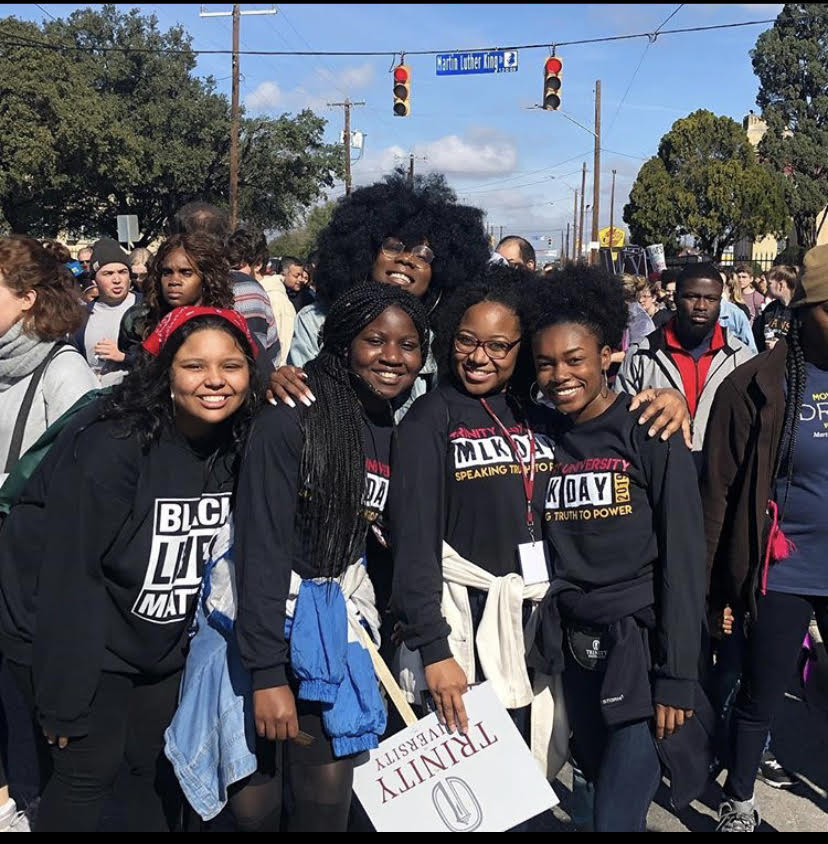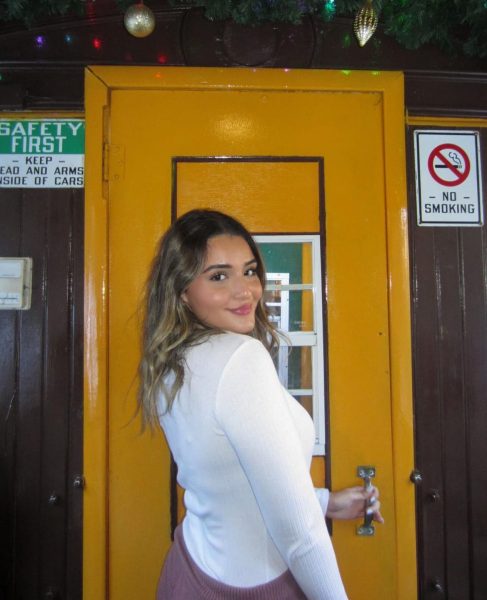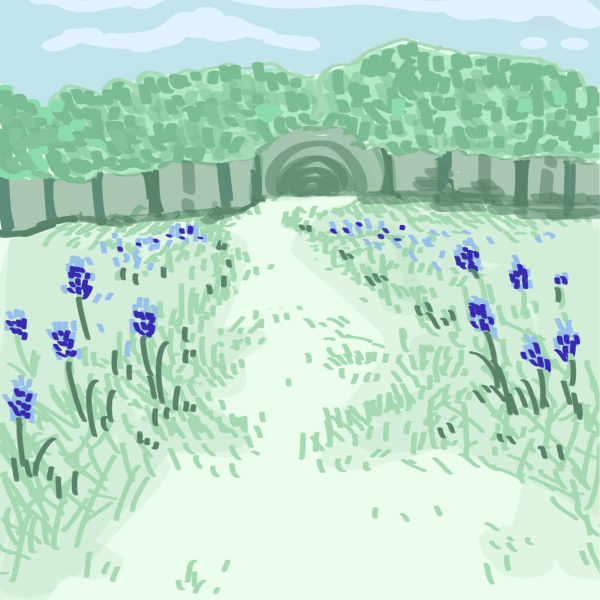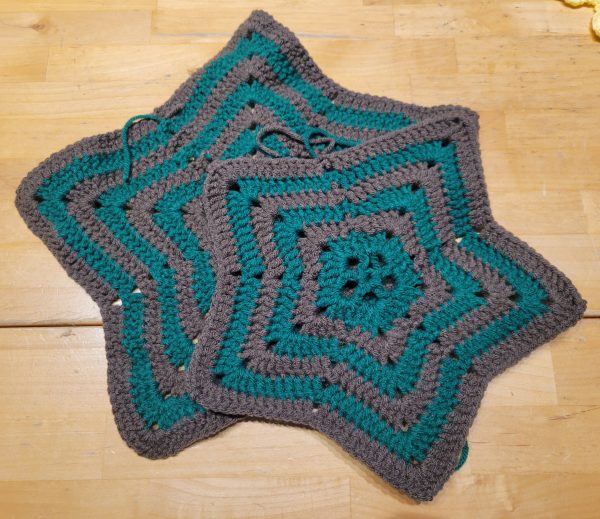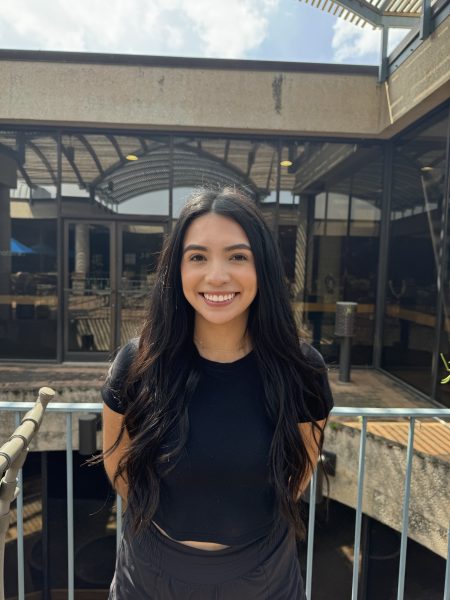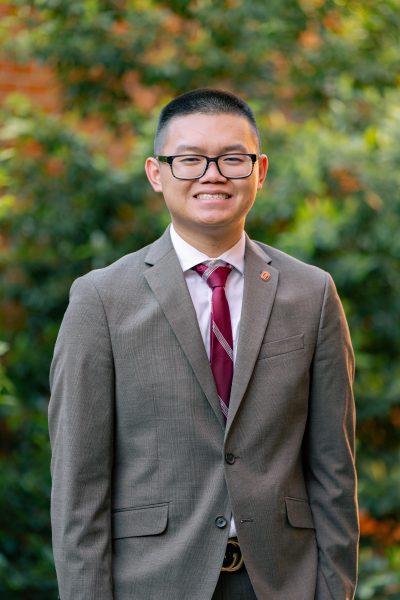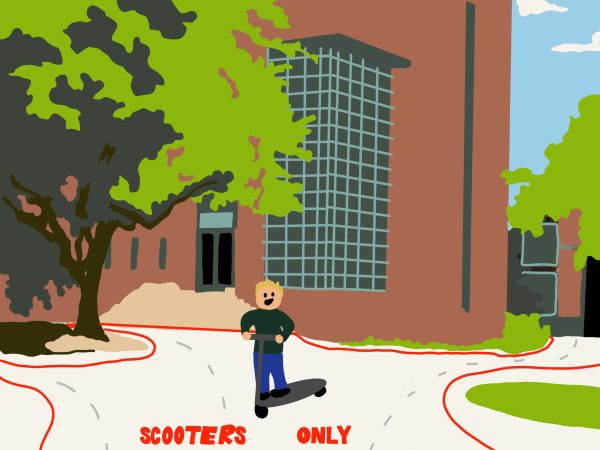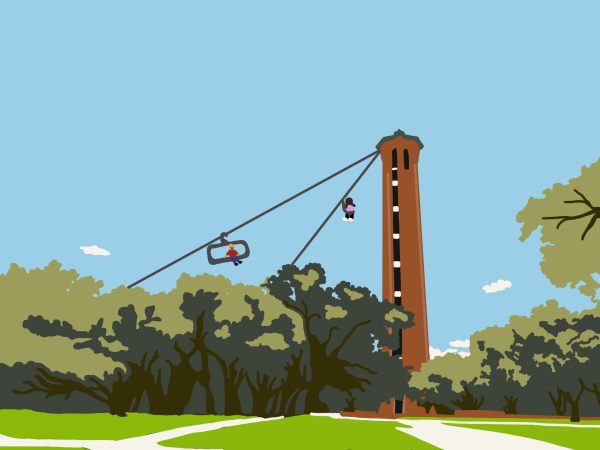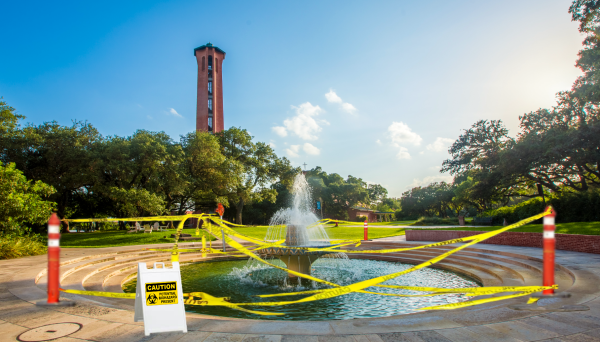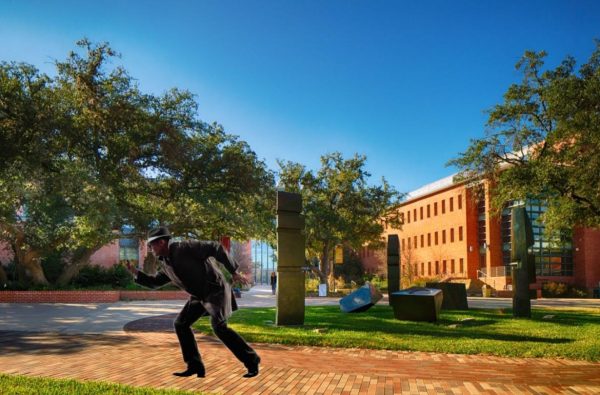Student spotlight: Q&A with Black Student Union President Kirsten Iyare
Can you give us some background about your participation and roles in BSU before becoming president?
My first year at Trinity I, like all the other first years, was bright eyed and bushy tailed. I swore I knew myself and I could take on any challenges being a minority at a PWI would bring me. I remember thinking I would fit in with everyone and all the kids were so nice. For the most part this was true. It wasn’t until I talked to a senior at the time and she told me this school isn’t for black women. I was like what are you talking about? I have friends we are having fun. I love it here. Literally after that conversation with “Amber” I saw a shift in the way I saw the school. I became depressed. I had known Stacey and she prompted me to join the BSU and the president at the time took me under her wing. I worked on committees and moved up to an executive position my sophomore year. Junior year I got news of the departure of my best friend Kezia and I felt helpless. I was elected vice president that year but I was truly struggling, mentally, emotionally and academically so I stepped down from the position believing I did what was best for me. When election time came again I thought the BSU community wouldn’t welcome me back, so I was hesitant to run for president. Coming back was the best decision I have ever made in my 4 years at Trinity.
What role has BSU played in you finding a community you can feel comfortable in, and how has this inspired you to create a community for incoming first years and beyond?
Being a first-year I remember telling myself, “Oh I don’t need that. I could find friends on my own and essentially running away from the black community.” I’m a very awkward person—I may seem outgoing and friendly but inside I’m stammering to find the right words upon meeting someone. Spring semester sophomore year is when I found that community. Towards the end of fall semester I felt alone, I was rejected from being an RA, undeclared major, and my friends it felt like they didn’t understand me. I was the only black one in the group and while we still remain friends I was happy to find people who get me. I was having an identity crisis and I needed a home away from home. BSU was that for me. I know how it was for me freshman year so I strive to make everyone feel welcomed like I did. Having a group of friends to support you, especially as a minority is so important. This year Triniti Lemmons and I along with Jeremy Boyce created a network for students who wanted to see other black students. I would say it was a success. A year prior I made it a priority of mine to work with Summer Bridge students so the students of color there also had a friendly face to refer to. I got the nickname Mama K after a while. I started paying it forward making sure that whatever invitation is extended to me I extend it to everyone else. Whatever knowledge I have about classes, jobs, financial aid programming I have to share because it’s not just me. I am not the only black student, female student, undeclared students, pell grant or low income student, first gen student. I do it because I don’t want them to go through whatever I had to endure, I want it to be better than when I left it.
What role did Alli, previous DIO director, play in events like MLK month, and how are you hoping the new director can help you all continue to thrive?
Alli was the BSU advisor my first year on board so we were able to see her often. MLK week was something the University and the Diversity office always headed from my understanding. BSU has nothing to do with the programming. Alli was chair and invited students and faculty to help, seeing as she had no additional help. That week is built off the backs of unpaid students who, like Alli, worked tirelessly to make sure everything went smoothly. Again Alli was our advisor, and because of that we had a relationship with the DIO. Our new Advisor, Dr. Becker has been giving us all the help we need at this time. If I am honest we are thriving on our own. Speaking for myself I have done very well as president, I have grown a lot and even gained confidence to challenge others (Administration, Professors, etc.) when I feel we are being unheard. I am confident that the new director will benefit the next BSU president and other cultural organizations, but I got this.
How have you adapted your events and outreach during COVID-19?
We are mainly on Zoom. My goal as president this year was to make sure we remember we are students first. A lot of us have multiple identities that we can not turn off. We are athletes, STEM majors, entrepreneurs, Black, LGBTQ+, low income, and most importantly human. I told eboard (pre-corona) this is the year we start working with the university meaning if they are having programming that fits our identities let’s promote that. Let’s work with TULA or ASA or IPC and go to their events. Cut down meetings because we have a licensed therapist that is now full time at Trinity that holds For Us By Us meetings where we can truly talk about anything that directly affects the black community or the black Trinity community. So far it’s been great, we hop on Zoom and have open forum discussions or game nights. We have an upcoming holiday party that will be virtual but we are also sending out gingerbread houses for a contest. It has been hard for my social chairs especially, but they do great work. I am very grateful for Joy Patterson, Ethan Moore and Kristian Adams because without them, BSU wouldn’t be able to have programs to promote fellowship— in this time we need it the most.
What has being president during COVID-19 been like? And did you anticipate it would be this way your senior year?
Senior year is not like the movies, let me tell you. Being at Trinity and being friends with seniors every year I always looked forward to the traditions. I finally turned 21 and I was like they always have like the happy hours for seniors that’d be cool. I know they had the tower climb again and people would be taking senior pictures at the fountain. I miss the football games the most. My friends and I could not wait to support our senior athletes. Track, soccer, football, they were very important to me. I will say I’ve made my amends with all of that. One of the things I looked forward to the most was the kente ceremony I, along with Joy Patterson, planned last year. I wanted more than anything to see my friends walk across the stage. I have now come to terms with the fact that I too won’t be having that ceremony. As far as my presidency, I had waited for this since my sophomore year. I wanted to implement new programs like the one Kezia Nyarko and I came up with called Fountain Fridays. I wanted to implement Study with BSU and Eat with BSU as initiatives for STEM and other majors who aren’t able to attend meetings a way to still feel apart of the community. COVID has made me re-structure my presidency and where I was angry before, my support group helped me realize there are things I cannot control. I accept that. This year BSU got enough donors to put us in 2nd place in the 1869 challenge. I am proud, and because of that the focus became gaining enough money for future programming. These young adults deserve what the other kids are receiving. They deserve food trucks and water slides and guest lecturers and conferences.
Is there anything you’d like to say to students who may be too shy to reach out to BSU, or have considered joining?
The BSU is an organization meant for those interested in fellowship with black individuals, black conversations and black culture. We want space to ourselves yes, but if you are someone who wants to uplift black voices, speaking to you Non BIPOCs, you are welcome. Do not however tell us how to think or act just exist with us. Do not hesitate to come to a meeting, I encourage you to come to at least one in your college career. My favorite one so far and one I would highlight as a must is a discussion we did with ASA on the difference between African, African American and Black.
For black students, we are here for you whenever you are ready for us. We love you and we see you.

